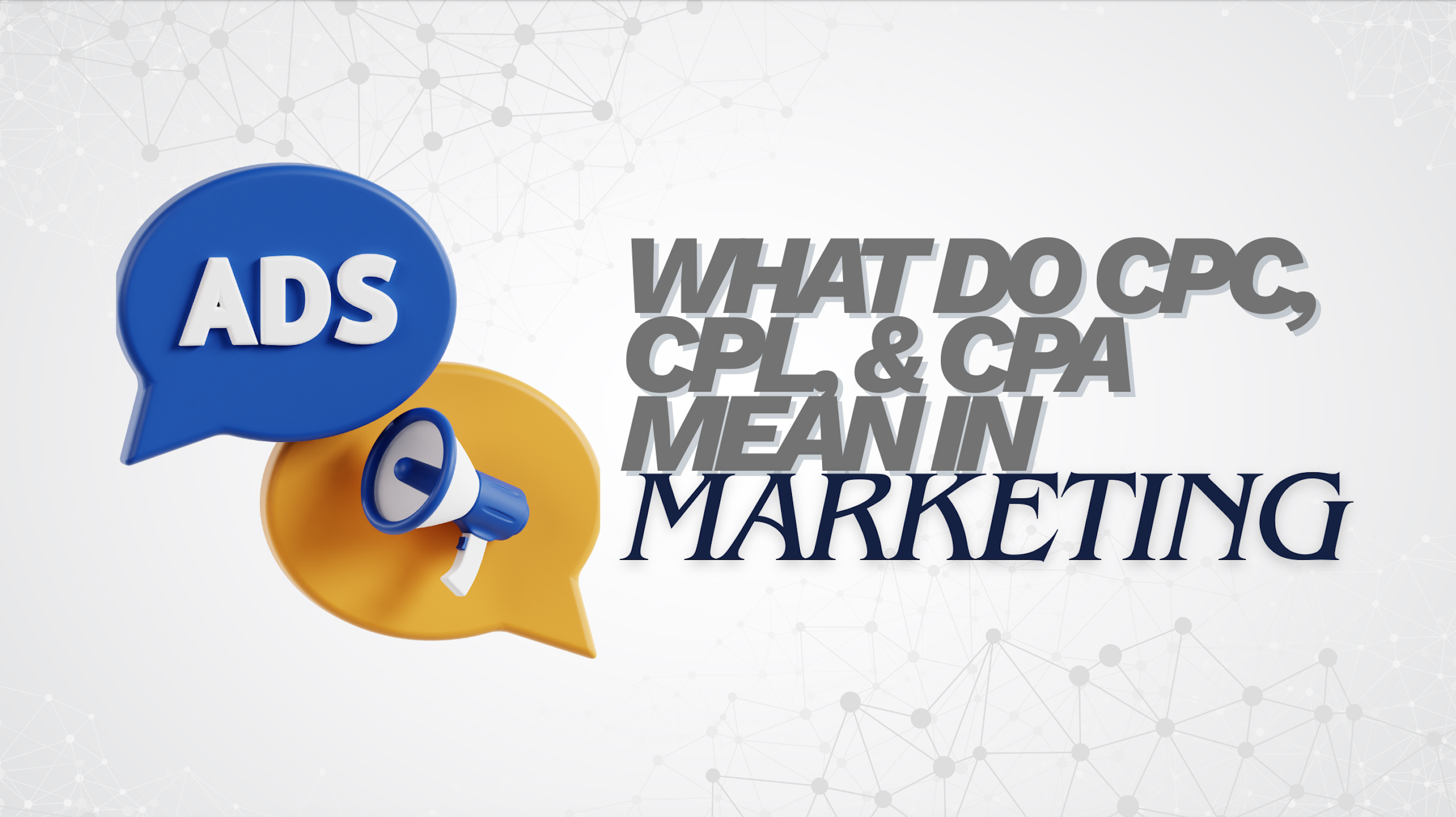What Does a Digital Marketer Do?

"Digital marketing" is such a broad term that it leaves a lot of us wondering: what does a digital marketer do? If you don't understand the title, then the position can seem like a whole lot of... nothing. Indeed, it's a broad umbrella term that can refer to a lot of different things. And to complicate matters further, not all digital marketers offer the same services.
Let's talk about some of the various responsibilities that fall under the job title of "digital marketer," so that you can better determine what kind of help you might need and the type of professional(s) you should look for to guide you.
What Does a Digital Marketer Do?
1. Organic Social Media Management
This is one of the more common services that a digital marketer can offer.
Keeping your business's social media pages active and fresh is important to growing your reach and forming new relationships. Digital marketers can post across your Facebook, LinkedIn, Twitter, Instagram, and TikTok pages (and any others you may have).
Now, bear in mind here that we're talking about organic social media management. This refers to the posting that can be done for free.
On the other hand, we have paid content — which brings us to our next point.

2. Paid Social Media Ads
The various platforms offer their users an opportunity to put money on their content, otherwise known as ads.
You've probably noticed the Boost button next to your Facebook posts. Sure, that's one way to do it. But the pros know that when it comes to Facebook — and Instagram, since Facebook owns it — Business Manager is where it's at.
Twitter, Pinterest, LinkedIn — they all have opportunities for advertising.
If you're thinking that this sounds like a huge job, you're right. Advertising, particularly on Facebook, isn't easy. The field is saturated and competitive. Brands are fighting for space in people's news feeds. It's getting more challenging, time-consuming, and expensive to succeed. This is why a lot of brands wisely rely on digital marketers to handle their paid ads for them. It's a separate job, in and of itself.
But when you do succeed, look out. Ads are no joke. There's a reason there are brands pouring five and sixth figures a month into them. (A month!)
3. Email Marketing
Email marketing is one of the most profitable types of marketing — some say it's the most profitable. It's incredibly inexpensive to get going but insanely powerful, meaning that you have a really good opportunity to make a stellar return on your investment (ROI). How stellar, you're wondering? The DMA National Client Email Report 2015 said that the average ROI for $38 for every $1 spent.
That's nothing to scoff at.
Email marketing is about a lot more than shooting off emails, and a digital marketer worth their salt knows this. One of the reasons why it's so powerful is that it allows you to segment your subscribers and deliver customized content to them.
Not only do you gather valuable information about these people, but you get to take them through a personalized experience. But nurturing this relationship, you're in a far better position to turn them into a loyal fan and then, a paying customer.

4. Blogging
Blogging is an important part of succeeding online. Organic traffic from Google is going to be vital for your growth, especially because getting substantial traffic from social media is as challenging as it is. Paid ads are a good option, but they obviously cost money.
Organic traffic from the search engine? That's f-r-e-e. Our favorite number.
There's an art and a science to it, though. It's not just about barfing up words on a page. A lot of research and planning goes into successful blog content, part of which is...
5. Search Engine Optimization (SEO)
Search engine optimization includes the steps that you take to rank higher in search engines and get traffic to your website using relevant keywords.
This means you have to know how to do keyword research — part of SEO and something that many digital marketers will offer.
Then, you need to know what to do with those keywords. This is where the optimization part comes in. For instance, you want your keyword to be in the title, URL, and first paragraph of your blog post.
SEO also includes local SEO, which is exactly what is sounds like: the steps you take to rank higher in search engines on a local level. For instance, if you're a bakery in Las Vegas, you want to rank higher in Google than competing bakeries in Las Vegas. That's local SEO.
Important note: There are actually a few different kinds of SEO. What we're talking about here also goes by the names "on-site SEO" and "on-page SEO." It's the elements of SEO on your own site. On the other hand, there's off-site/off-page SEO, which refers to outside websites that are talking about or linking to you.
Yet another type of SEO is technical SEO, which refers more to the inner workings of a website — but we'll save that for another blog post.

6. Paid Google Ads (Search and Display Ads)
While we're on the topic of search engines, let's revisit paid ads one more time, since you can run ads on Google, too.
Great website content can get you to the top of Google. So can paid ads. You'll need to do more than throw some money at it, though. Much of being successful with paid Google ads boils down to targeting the right keywords and reaching the right audience. Otherwise, you risk spending a boatload of money and watching it go down the drain.
Best leave this to the pros.
7. Online Reputation Management
As important as what you're saying about your own business online is what other people are saying about your business. Your customers/clients are leaving reviews of your products and services on third-party review sites like Facebook, Google, Yelp, and other platforms. They might leave you five stars. They might leave you one. They might say your service was incredible. They might have had a terrible experience.
In both cases — and especially when people are saying negative things — you need to be on top of this, responding quickly, addressing their concerns, and offering a resolution.
And the bigger your company gets (growth is good!) the more chatter you're going to have to manage. This is why many brands will outsource their reputation management to a digital marketer.
Also, reputation management isn't just handling what people have already said. It's finding new opportunities to have your business featured and highlighted. This is excellent for your reach and exposure. It'll help bring new eyeballs to you brand online. We call that a win!
Feeling overwhelmed? It's okay. There's a reason that businesses don't handle all of this themselves: It's a LOT. If you feel like you're drowning in your digital marketing efforts, you don't need to do it alone.
LSM offers a vast array of digital marketing services, from blogging and SEO to organic and paid social media. We're a small team of skilled professionals, and we want to take your online presence to new heights.
Ready to take the next step? Contact us today.





